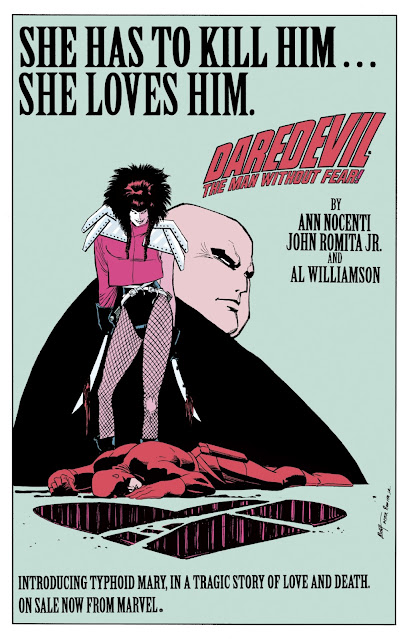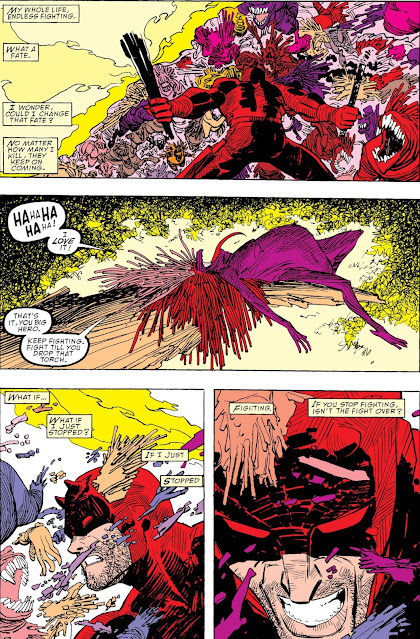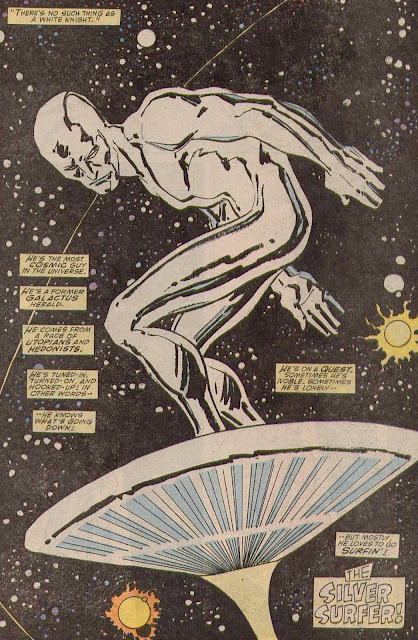These past few years, through the Covid pandemic, I've found myself retreating into nostalgia, reading old comic books, playing classic video games, watching comfort movies, and not only has it been a salve for this upended time, but it has also been greatly enjoyable. But there was one experience with which my childhood had been filled that I'd forgotten about: reading trashy sci-fi and fantasy paperbacks. Our family trip to Disney provided a prime opportunity to alleviate that oversight, and it didn't hurt that I'd gone on an online "shopping spree" to find the original Star Wars extended universe books by the likes of L. Neil Smith, Alan Dean Foster, and Brian Daley.
Han Solo at Stars' End is the first in the Han Solo trilogy (OG style). Written by Daley, who also adapted the original Star Wars films for radio, this book was way more fun than I expected it to be. Daley's prose was light and airy, whisking along at a good clip, while also providing descriptions that felt both familiar and alien at the same time. I'm uncertain when this story is supposed to take place, though I would guess it's prior to Han & Chewie hooking up with Obi-Wan, Luke, and the Rebellion, as we get no mention of anything relating to the first film. A wise decision, as it allows Daley to be untethered from continuity and not have to second-guess any of his writing choices.
If we don't get any of the other characters we love from Star Wars, we do at least get the familiar in Han Solo and Chewbacca, with characterizations that feel right. Daley also provides a lot of information about the Falcon, commenting at length on the modifications hinted at by Han in that first film, and they all feel plausible and in keeping with what we already know of Han. One of the things I did not expect to get, in reading this book, was new, pertinent information about one of my favorite ships in all of science fiction. More importantly, though, it is these modifications that are vital to the plot of the story.
While finishing up a job for one scoundrel, Han is informed that, due to new regulations from the Corporate Sector Authority, he will need to have the Millennium Falcon examined and a waiver provided, in order for it to be allowed to fly within Corporate Sector Authority space -- safety precautions and all that, don'tcha know? Han knows he'll never get the waiver, and he and Chewie break the Falcon out of impoundment and fly for a black market technician Han knows, who goes by Doc, in order to get the Falcon tuned along with procuring paperwork that will make it look as if the Falcon has the necessary waiver. After arrival, though, Han & Chewie learn from Doc's daughter, Jessa, that he's been kidnapped, and they have no idea where he is.
A deal is made. Jessa will provide the paperwork and do repairs on the Falcon if Han will transport two droids to Orron III, within Corporate Authority space, and exfiltrate a small band of individuals from the planet, which also houses one of the Authority's data centers. The droids are going to insinuate themselves into the Authority's data banks and work to find where Doc, and the many others who have been taken, are being held. Han doesn't like the odds, or the idea of returning to a main hub in Authority space, but he has no choice and agrees.
When Han & Chewie arrive at Orron III, we are introduced to the first black character in Star Wars history, as far as I can tell, as Rekkon greets them. He is the leader of the band of people trying to leave the planet, but he also has the problem of a mole within his group, and he wants Han to assist in finding who that is. They go into the city and the robots infiltrate the system, not only finding the information they need but also discovering that the security police are aware of their presence in the data center. The group, including the other members of Rekkon's cadre, flee, but in the ensuing chase and firefight Chewbacca is taken prisoner. Rekkon stops Han from sacrificing himself in a vain attempt to rescue his friend, an attempt that could only have ended in his death and possibly the wookiee's.
They clamber into the falcon, still camouflaged within the core of a huge space freighter, and take off, but the Authority has a dreadnaught waiting in orbit, which goes to intercept them. Han releases the grain in the freighter then detaches the Falcon from within its hull and blasts away, letting the freighter fall into the Authority ship, allowing them to escape. But when Han is finally able to leave the cockpit, he finds Rekkon dead. Killed by the traitor, who is still on his ship. But Rekkon left a message, in his own blood, of where the Authority is holding all those they have kidnapped: Stars' End, Mytus VII.
Han sets a trap with disinformation about what Rekkon discovered and susses out who the traitor is. A fight ensues, but Han eventually gets the upper hand. The traitor, Torm, seeks refuge in one of the Falcon's compartments. But it is an emergency airlock. Han ejects him into the cold of space, then turns his attention to Stars' End and saving Chewie.
Stars' End is a detention facility, run by an autocratic Vice President named Hirken. Han intercepts a communication from the entertainers' guild about a cancellation by a troupe scheduled to offer their services to Stars' End, but they assured the V.P. that a replacement will be sent along as soon as possible. Han and his new companions use this as a way in and pass themselves off as entertainers.
Of course, things do not go as smoothly as Han would have hoped (but if things went smoothly, he wouldn't be Han Solo, would he?). The Vice President expected a combat robot to go against his own gladiator-bot. The robots in Han's keeping are not at all outfitted for such an experience, but they go along with it.
Han manages to get into the main computer area and discovers, or intuits, where the prisoners are being held. Meanwhile, V.P. Hirken becomes irritated at the stalling tactics of Han's companions and demands combat between the droids. It goes surprisingly well for the labor droid Han brought along, but eventually the truth -- as much as necessary -- is revealed and things go from bad to worse. It's exciting and tense, but in the end Han Solo manages to free all of the prisoners, finding Chewie and Doc, while his companions find their loved ones, and they manage to escape in the Falcon after setting the detention center to self-destruct, leaving Vice President Hirken and his entourage to perish on Stars' End.
I may have said it above, but I was surprised at how much I truly enjoyed reading this. Daley wrote a fun, exciting, tense adventure that allowed me to immerse myself into the world of Star Wars that I love so much. There was no overwriting, no dull points, no out of character moments. I loved it all, along with the opportunity to once again stick my nose into a weathered, yellowing paperback book. What a fun experience!
-chris











